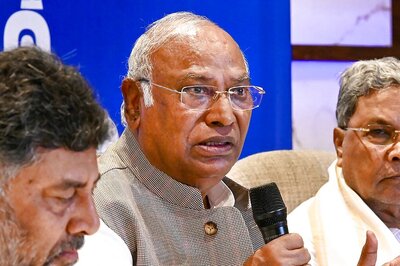
views
New Delhi: Government has decided to extend the agreement with International Seabed Authority (ISA) by 5 years for exploration of manganese nodules that will also help in extracting minerals like, nickel, cobalt and copper.
The Cabinet, chaired by Prime Minister Narendra Modi, has approved extension of contract between Ministry of Earth Sciences and ISA for exploration of Polymetallic Nodules (manganese nodules) for five years (2017-22), an official statement said.
The earlier contract is due to expire on March 24, 2017.
"By extending the contract, India's exclusive rights for exploration of Polymetallic Nodules in the allotted area in the central Indian ocean basin will continue and would open up new opportunities for resources of commercial and strategic value in area beyond national jurisdiction," it said.
Further, it would provide strategic importance for India in terms of enhanced presence in the Indian Ocean where other international players are also active, it added.
These potato-shaped, largely porous nodules, also called manganese nodules, are found in abundance carpeting the sea floor of world oceans in deep sea.
Besides manganese and iron, they contain nickel, copper, cobalt, lead, molybdenum, cadmium, vanadium, titanium, of which nickel, cobalt and copper are considered to be of economic and strategic importance.
India had signed a 15-year contract for exploration of Polymetallic Nodules (PMN) in Central Indian Ocean Basin with the ISA, an institution set up under the Convention on Law of the Sea to which India is a party, on March 25, 2002 with the approval of the Cabinet.
At present, India has an area of 75,000 sq km, located about 2,000 km away from her southern tip for exploration of PMN.
Ministry of Earth Sciences is carrying out the survey and exploration, environmental impact assessment, technology development (Mining and Extractive Metallurgy) under PMN through various national institutes.
They include National Institute of Oceanography (NIO), Institute of Minerals and Materials Technology (IMMT), National Metallurgical Laboratory (NML), National Centre for Antarctica and Ocean Research (NCAOR) and National Institute of Ocean Technology (NIOT).

















Comments
0 comment